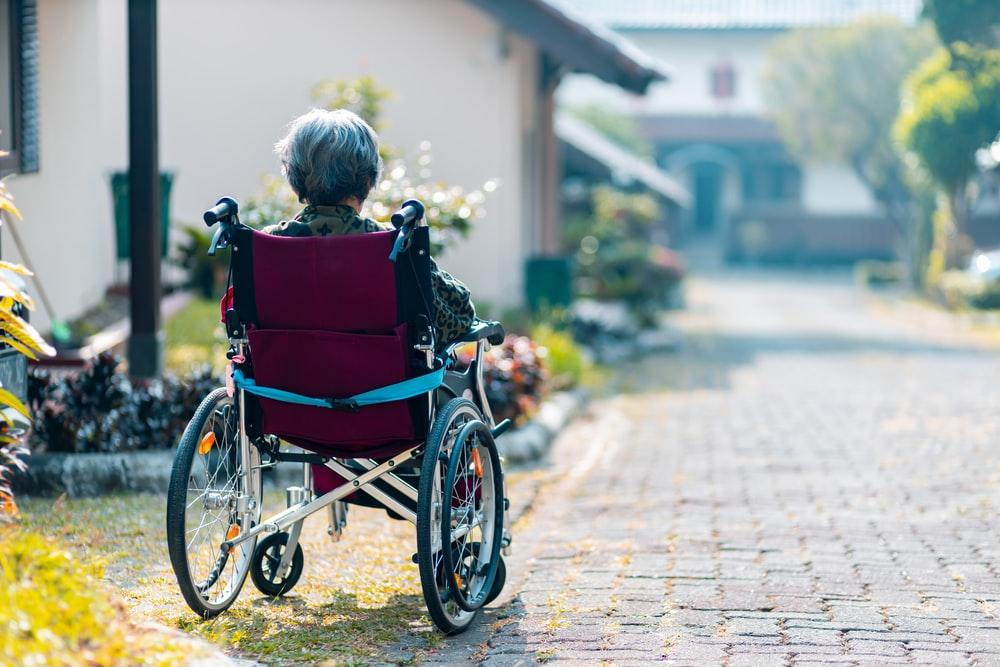
September is World Alzheimer's Month, so we thought it would be the perfect time to learn a little about the disease and ways to delay it.
Alzheimer’s is a slow, progressive disease that ultimately destroys memory and other important bodily functions. Brain cell connections and the cells themselves degenerate and die. Memory loss and confusion are the main symptoms of Alzheimer’s disease. While people diagnosed with Alzheimer’s disease can live for many years, they eventually lose the ability to care for themselves independently. There is no cure for this debilitating illness, but certain medications and caregiving strategies may temporarily help to manage the symptoms.
More than 6 million Americans are currently living with Alzheimer’s disease. By 2050, this number is projected to rise to nearly 13 million. According to Dr. Barry Reisberg at NYU’s Grossman School of Medicine, there are seven Clinical Stages in the progression of Alzheimer’s disease. Dr. Reisberg’s assessment model is now used by professionals and caregivers around the world when evaluating a patient’s progression through the illness. While an awareness of this model can be helpful, it is important to remember that not all people living with Alzheimer’s disease will experience every stage.
7 Clinical Stages of Alzheimer’s Disease
Here is a list of the stages as summarized by www.alzheimers.net:
Stage 1: No impairment during this stage, Alzheimer’s is not detectable, and no memory problems or other symptoms of dementia are evident.
Stage 2: Very mild decline. The individual (not all people with AD are seniors) may notice minor memory problems or lose things around the house, although not to the point where the memory loss can easily be distinguished from normal age-related memory loss. The person will still do well on memory tests and the disease is unlikely to be detected by loved ones or physicians.
Stage 3: Mild decline. At this stage, the family members and friends of the individual may begin to notice cognitive problems. Performance on memory tests is affected and physicians will be able to detect impaired cognitive function. People in stage 3 will have difficulty in many areas including: Finding the right word during conversations, organizing, and planning, or remembering names of new acquaintances. People in stage three may frequently lose personal possessions, including valuables.
Stage 4: Moderate decline. In stage four, clear-cut symptoms of the disease are apparent. People with stage four have: Difficulty with simple arithmetic, have poor short-term memory (may not recall what they ate for breakfast, for example), have the inability to manage finances and pay bills and may forget details about their life histories.
Stage 5: Moderately severe decline. During the 5th stage, people begin to need help with many day-to-day activities. People in stage five may also experience: Difficulty dressing appropriately, inability to recall simple details about themselves such as their own phone number, and significant confusion. Generally, people in stage five maintain functionality. They can still bathe and toilet independently. They usually still know their family members and some detail about their personal histories, especially their childhood and youth.
Stage 6: Severe decline. People in stage 6 need constant supervision and frequently require professional care. Symptoms include: Confusion or unawareness of environment and surroundings, inability to recognize faces except for the closest friends and relatives, inability to remember most details of personal history, loss of bladder and bowel control, major personality changes and potential behavior problems, need for assistance with activities of daily living such as toileting and bathing. They also experience executive functioning challenges, for example, are impulsive, their social filters are not working properly so they may say things that are not nice or inappropriate. They are unable to understand their cognitive condition. They also may wander out of their house or get easily lost in familiar environments.
Stage 7: Very severe decline. Stage seven is the final stage of Alzheimer’s. Because the disease is a terminal illness, people in stage seven are nearing death. In stage seven of the disease, people lose the ability to communicate or respond to their environment. While they may still be able to utter some words and phrases, and they need assistance with all activities of daily living. In the final stages of Alzheimer’s, people may lose their ability to swallow. In stage 7, engaging with people can be difficult and sad.
Coping and Communication with those who have Alzheimer’s
The following are some tips for you to cope and better communicate with them. Additionally, Atlanta-based author Nancy Kriseman, has written a book, Meaningful Connections: Positive Ways to Be with a Loved One Who Has Dementia, which provides ideas on how to spend time with your loved one as the disease progresses. A person may live with Alzheimer’s disease five, ten, or twenty years before any symptoms appear. The good news is that there are things you can do to delay the symptoms.
Tips to Delay Alzheimer’s
Whether you are 20 or 80, it’s never too early to start taking care of your brain. Here are some tips:
1. SLEEP. Getting at least 7-9 hours of sleep a day helps with memory retention. If you have trouble getting to sleep, you can improve your sleep hygiene by cutting back on caffeine, keeping your bedroom temperature cool, avoid exercising too close to the time you go to bed, and avoid scrolling through social media just before bedtime. Getting less than seven hours of sleep each night increases your risk of developing Alzheimer’s.
2. NUTRITION. Food isn’t just fuel for your body. It’s also fuel for your brain.
- Eat a variety of foods, especially fruits and vegetables, whole grains, lean protein, and low-fat dairy.
- Keep a healthy weight. Proper portion sizes and exercise are a key part of this, too.
- Limit foods with high saturated fat and cholesterol, like fatty meats and fried foods.
- Cut down on sugar.
- Avoid eating too much salt.
- Drink plenty of water
3. EMOTIONAL WELL-BEING. Being able to calm your mind and avoid stress helps your brain. The following are ways to calm your mind that may improve your emotional wellbeing: meditation, get outside in nature, talk about your feelings with people who will listen without judgement, avoid negative people, avoid social media arguments, learn to say “no” to things you don’t really want to do, try to find one positive thing to focus on in any situation, and find at least one thing you’re grateful for each day.
4. PHYSICAL EXERCISE. Moving your body and raising your heart rate regularly can play a meaningful role in managing symptoms . This video features Wendy Suzuki, a professor of Neuroscience and Psychology at the New York University Center for Neural Science, explaining how exercise makes areas of your brain stronger that will delay the onset of cognitive decline. Suzuki recommends exercising three to four times a week for at least 30 minutes.
5. COGNITIVE FITNESS. One of the best ways to work out your brain is by teaching it new things. Try learning a new musical instrument or a language, taking a course, or picking up a new hobby. Participating in different types of mentally stimulating activities can exercise dormant areas of the brain and even increase blood flow to them. Reading a book or a newspaper every day or journaling daily are also great ways to practice cognitive fitness. Keeping your mind active is one of the most impactful ways to delay the onset of cognitive decline. Activity that exercises the brain may build brain reserves that help to compensate for the damage caused by Alzheimer’s or other diseases. If the brain is able to compensate and keep functioning well, the onset of dementia may be delayed.
6. SOCIAL ACTIVITY. Being with other people while enjoying activities increases new brain connections while also helping maintain positive well-being. Meaningful social activities enhance quality of life for the person living with this challenging illness.
The bottom line is that there are many positive ways to manage the symptoms and delay the progression of Alzheimer’s disease. For more information on caring for someone with Alzheimer’s Disease, click here: https://www.alz.org/help-support/caregiving.







